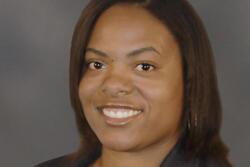Kicking off the 2010 Institute for Educators!
Since 2006, The Jewish Women’s Archive has been holding a bi-annual Summer Institute for Educators, a conference that allows teachers to explore ways of incorporating Jewish women’s history into their curricula. This year, the focus of the Institute is Jewish involvement in the civil rights movement. Many history classes from elementary to high school emphasize the civil rights movement as an inspiring story with an importance message about tolerance and diversity. The civil rights movement was something that was very present in my experience as a grade school student, but Jewish involvement was a piece that I was unfamiliar with before coming to JWA. (Though when I told my Jewish grandmother about it, she wasn’t a bit surprised, and said she knew that many Jews had been part of civil rights activities!)
Part of my work this summer has been to help prepare lesson plans from JWA's upcoming curriculum, Living the Legacy, for presentation at the Institute. This has been very interesting, not least because the lesson plans are so exciting to read. They engage students in activities such as acting out scenes from history, discussing the meaning of justice in Jewish culture, and starting their own activist campaigns. All the lessons involve primary sources that make historical events spring to life, from letters to photographs to recordings of sermons.
I was so impressed with the lesson plans that I started feeling a little jealous—where were primary source-based, interactive, and engaging history lessons when I was in high school? With a few exceptions, my knowledge of history in high school came from textbooks, and almost nothing I learned in the classroom made me think that I’d end up being a history major in college. I think the most important part of teaching history is to engage students with the people who lived in the past, and understand them as real people not so different from how we are today. Primary sources are so exciting because they allow us to really hear the voices of people different times, and recognize that they weren’t so very different from people today. The Living the Legacy curriculum makes admirable use of multimedia sources; listening to a recording of Rabbi Milton Grafman, who literally pounded the pulpit while decrying the church bombings in Birmingham, is a powerful experience.
The civil rights movement is so important because it provides a jumping-off point to understand issues that are more relevant than ever today: ideas of identity, diversity, and social justice. That these are often difficult issues to discuss makes it all the more important to talk about them, especially for high schoolers, who are beginning to discover and question their own identities.
The Institute for Educators kicks off this weekend on Sunday the 25th. Stay tuned for posts, photos and videos from the exciting events, including an oral history session with 1961 Freedom Rider Judith Frieze!
You can find out more about past and future JWA Institutes for Educators here. If you would like to follow the Institute on Twitter, search for the #jwaI4E hashtag.






Applying for this summer's Institute for Educators happened months ago. If you missed the announcement, or if you just want to find out as different tools, lesson plans, and workshops are announced, you can sign up for the JWA Educator's announcement list - jwa.org/signup